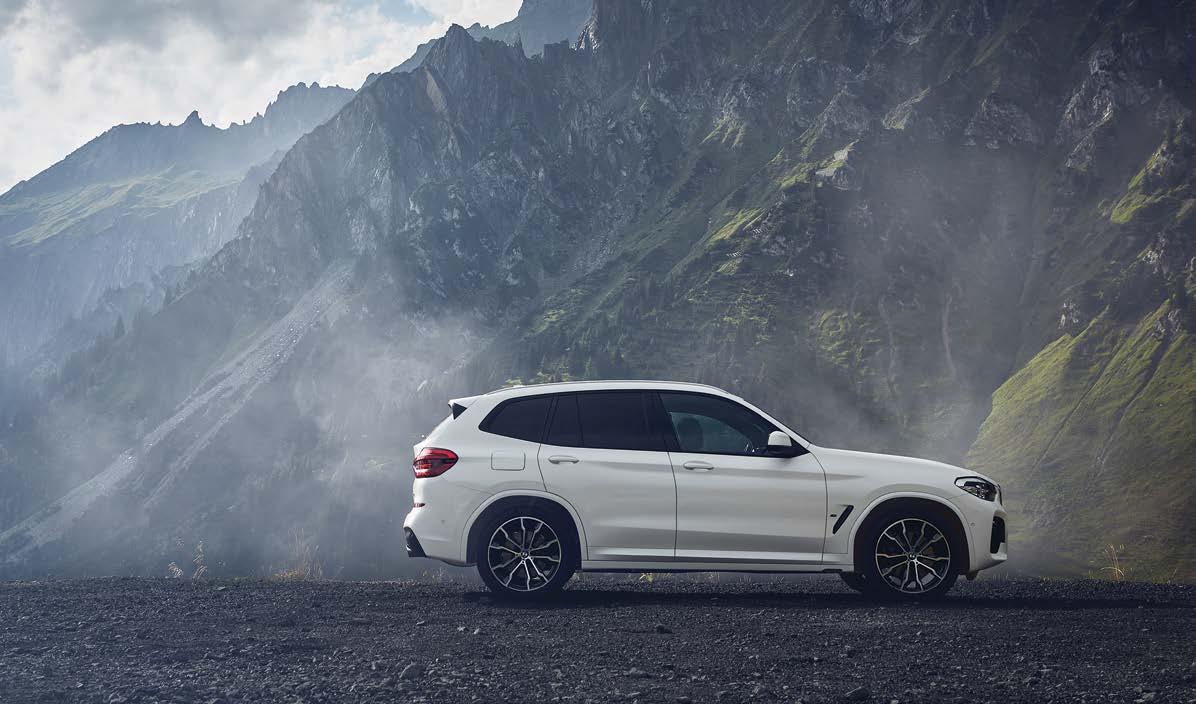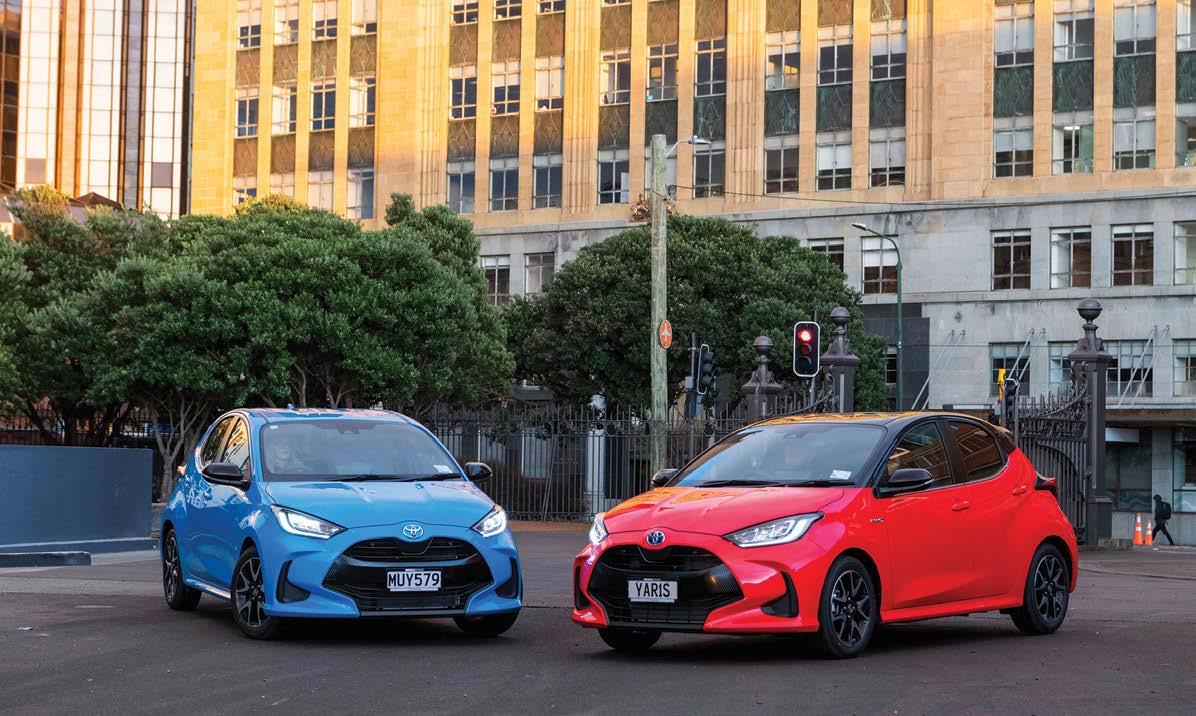
8 minute read
ELECTRIC VEHICLES IN NEW ZEALAND
ELECTRIC CARS IN NEW ZEALAND
Most vehicle manufacturers now produce electric cars. Ponsonby News investigated a number of models including Audi, BMW, Hyundai, Jaguar, Landrover, Mercedes and Nissan.
A report by NZ Electric Car Guide writer, Sigurd Magnusson, said that: “Electric cars have no clutch or gears, and accelerate more quickly and smoothly, in a ‘sporty’ way, and they climb hills easier than petrol cars. A fully electric motor has fewer moving parts, no spark plugs or engine oil, and requires less maintenance than a petrol equivalent. Such cars are extremely quiet and reduce noise pollution.”
So why are sales of electric cars taking so long to take off in New Zealand? In Norway, for example, electric cars outsell fuel-driven cars, and Norway expects to end fuel car sales in 2025. Norway also has the most incentives. Norway charges a ‘pollution tax’ on fuel vehicles based on emissions and weight, and allows a discount on electrics, something our government tried to implement, but the New Zealand First party killed. The reasons New Zealand has not embraced electric cars are complex, but price is a big factor. The most economical electric cars in New Zealand are the Nissan Leaf and the Hyundai Ioniq. However, they are $60,000 and $66,000 respectively, to purchase new. Another problem, according to one dealer, is the danger to New Zealanders of cheap imported, one star safety-rated used electric vehicles, mainly from Japan. “They should be banned,” he told Ponsonby News.
Batteries are still problematic too. They use scarce resources, and are expensive. They may have a ten year guarantee, but replacing part or all of a battery is expensive. But batteries, which weigh several hundred kilograms, sit in the floor of the car, giving cars a lower centre of gravity which adds stability when cornering or accelerating.


The exciting new Mercedes-Benz EQC is a pure electric luxury SUV that can achieve over 400km’s to a single charge, and provides a look into the future of New Zealand’s bestselling luxury vehicle brand
New Zealand could introduce a number of incentives to encourage use, including allowing electric cars to use bus lanes and toll roads, give them free urban street parking and free charging stations. We produce good cheap hydro-electricity.
I talked to representatives of the two companies that sell the most price competitive cars, the Nissan Leaf, the Hyundai Ioniq, and the Kona.
Ashtin Hunter at Giltrap Nissan, Great South Road, Greenlane, showed me the brand new Leaf. My first impression was that it looked much nicer than its predecessor. It retails at $60,000 and has a battery range of between 270 and 330 km on a fully charged battery. The Leaf battery has an eight year guarantee. It can be rapidly charged in one hour, or seven hours more slowly overnight. Hunter confirmed the Leaf is cheap to run, has excellent acceleration, and a five star safety rating.
Hunter assured me it compared more than favourably with its nearest competitor, the Hyundai Ioniq. Competing car dealer, Hyundai, also on Great South Road, features the Ioniq and the Kona. Hamish Anderson was very upbeat about their cars. Their battery is a Tesla model with a ten year warranty. It is built to last 25-30 years. Anderson surprised me by saying these electric cars are more economical around town than on the open road. It is to do with the re-generative braking which recharges batteries as you slow or go downhill. The Ioniq has a range of 311km, the Kona 480km.
There is still what Hamish calls ‘range anxiety’ in New Zealand; quite unnecessary he says, because it’s just as easy to programme how far you will get on a full charge, as it is to prevent running out of petrol.
The leading car brands representatives all see electrification as a significant part of the personal vehicle landscape. BMW’s commitment to electrification and sustainable practice is from factory to road, and in New Zealand this is most easily seen in their support of New Zealand’s ‘electric highway.’

“Over the last few years we have invested significantly, working with ChargeNow to expand the charging network throughout the country,” says Karol Abrasowicz-Madej, Managing Director of BMW. The current network has been a great start, and made a huge impact on the freedom of electric travel. “This will continue to improve as more people turn to electric vehicles,” AbrasowiczMadej told Ponsonby News.
Ben Montgomery, Operations Manager of Jaguar and Landrover, is also upbeat about the convenience of electric vehicle charging. “In the North Island there are only one or two areas where the distance between charging stations is more than 75 km,” he told us.
“When the range of most new EVs is well over 100km, and up to 400km, the charging network seems up to the task,” added Montgomery. “Currently if you leave home full of charge for a long haul trip in your EV you will easily be able to keep your vehicle going without fear of running out of battery.”
Audi’s Managing Director, Dean Sheed, believes there are now enough public ‘fast chargers’ for a significantly sized electric fleet, but this is only part of the story. “These are more for out of city travel. Remember 80% of the charging is done at home in the garage - so the public ones are about out-of-city travel,” explained Sheed.
New Zealand’s largest selling car brand, Toyota continues to release affordable hybrid models starting at $27,990 driveaway, that could provide many people with the best way to begin their eCar journey.
Neeraj Lala, Toyota New Zealand CEO says, “Toyota globally has committed to having an electrified option across the range by 2025, and their strategy is to focus on all powertrain options including hybrid-electric, plug-in hybrid electric, fuel cell electric and battery electric. Locally, we have seen a huge increase in the number of hybrids we are selling as consumers look to reduce their carbon footprint. We will continue to bring in more vehicles that help lower our CO2 emissions, as we work towards our COP21 requirements.”
In New Zealand we must urge our government to introduce incentives for us to drive electric vehicles. They produce no exhaust, which is kinder on the environment; petrol and diesel transport produces 18% of New Zealand’s greenhouse gas. 80% of New Zealand’s electricity is generated by rain, geothermal and wind. Every year we import several billion dollars worth of petrol and crude oil.
Electric cars are certainly more expensive up front, but cost breakdowns show they are cheaper overall. Battery prices are high, but falling. We are already falling behind other countries who are addressing climate change more aggressively than us. All new cars sold are expected to be electric from 2025 in Norway, 2030 in Germany, Sweden, Netherlands and India, 2032 in Scotland, and 2040 in France and Britain.
I haven’t mentioned the Tesla - Elon Musk has become a household name, and there are two in my street, and one just around the corner. But these cars represent the affluence which has become so rampant in New Zealand, and the inequality which Labour has promised to diminish.
But give us the incentives, Labour, so more New Zealanders can help mitigate against climate change, by driving economical electric vehicles.
New Zealand better get its skates on or we will be left behind. (JOHN ELLIOTT) PN

Any prospective client looking over the Mackelvie Street panelbeaters, Professional Panel and Paint, can not help but be impressed with the neat, clean and tidy workshop.
Ryan Wilkinson, young energetic and highly qualified, took over the workshop in April 2019. Wilkinson is a born and bred Aucklander, growing up in Greenlane, and going to Auckland Grammar School. He had 13 years experience behind him, training at Boss, Onehunga.
He gutted the old workshop, filling a large bin, repainted walls and floor, and his landlord put a new roof on the building. New signage, and new equipment, including an inventer spot welder, were added to the business.
Ryan has a passion for his work, and has an old Escort at the back of the workshop which he is restoring - his own pride and joy. Business has been tough this year, especially of course because of Covid-19, but is picking up. Wilkinson is pleased to be in such a central position, with lots of homes and apartments in the vicinity. Local clients don’t have far to go for his services, while so much industry has tended to move away from residential areas. Professional Panel and Paint seeks to be unashamedly local and parochial, echoing the Ponsonby News mantra - ‘stay local, shop local, support your local businesses.’ He urges locals to “just drop your vehicle off to us and we’ll fix it.” When I asked about his experience and qualifications, Ryan quite reluctantly admitted he was, in 2009, the New Zealand Painting Apprentice of the year - the winner of the Golden Gun Award.

There is a happy/sad dimension to this young businessman’s story. His business’s official name is Wilkinson Bros Ltd, a tribute to his brother lost several years ago at just 35 years of age. Part of the finance that allowed Ryan to buy Panel and Paint came from a small legacy from his late brother, so he named the business accordingly - a lovely touch to his four
years older brother. Ryan Wilkinson is a personable and articulate young man, keen and enthusiastic for his business, who in our opinion at Ponsonby News, deserves to succeed. Ryan has two fulltime staff, who feature in the accompanying photo.
Small businesses are never easy to run, especially in times of global pandemics, but Wilkinson has made a good start. We urge locals who have suffered a dinged vehicle to check him out. He’ll sort you out with skill and the latest techniques. PN
PROFESSIONAL PANEL AND PAINT, 34 Mackelvie Street, T: 09 376 1069, www.professionalpanelpaint.com



PROFESSIONAL PANEL & PAINT 34 Mackelvie Street, Grey Lynn PHONE: 09 376 1069 EMAIL: info@professionalpanel.co.nz www.professionalpanelpaint.com











